Generally, most of us tend to avoid shooting in the midday sun.
Noon is when the sun’s rays are at their brightest and harshest, resulting in lighting that can be challenging to work with. Additionally, with the bright sun comes harsh shadows, and plenty of contrast; resulting in images that are often overexposed and blown out.
But while shooting in the midday sun may not always be ideal, sometimes we don’t really have a choice! We can’t always find ourselves on-location during the morning or late afternoon golden hours, and being able to work with the midday sun can help you to walk away with some amazing shots that you would have otherwise missed out on. Additionally, there are some exciting photo opportunities to be had in bright lighting conditions that are different than what’s found at any other time of day.
If you’d like to learn how to take great landscapes when the sun is overhead, here are a few tips that will help you to capture some amazing images –no matter how bright the sun!
1. Adjust Your Settings
One good thing about shooting in the midday sun is that for the most part, you shouldn’t have to adjust your settings very frequently. Unless there are a lot of clouds interfering with the sun, or you are adjusting your angle a lot, then you will be working with a steady amount of light for a good chunk of time. With that said, you should still adjust your settings to help balance out the amount of light that your image will be taking in.
Consider starting with the Sunny 16 rule that suggests an f/16 aperture, 1/100 shutter speed, and 100 ISO to get a decent exposure. Of course, this won’t apply to every situation, but it gives you a good starting point to work from.
2. Change Your Angle
When it comes to getting great images in the middle of the day, you’ll probably find that you have to do a lot of adjusting to find an angle that’s optimal. We all know the benefits of shooting with the sun at our backs. While this can be challenging in the midday sun, shooting with the sun behind you can help to prevent some of the harsher rays from disrupting your image. In other cases, you may find that you’ll want to get lower to the ground when shooting, as it’ll help to block out some of those harsh shadows that would otherwise find their way into your picture.
→ Related reading: How Perspective Impacts Landscape Photography
3. Use an ND Filter
Another way to work with the midday sun is by using a neutral density (ND) filter. An ND filter acts like sunglasses for your lens, and will block out some of that bright light. This can be ideal for those times where you’d like to use a slow shutter speed to blur the movement of a waterfall or the clouds –something that, due to the length of the exposure, would ordinarily be limited to darker conditions.
→ Related reading: How and Why to Use a Neutral Density Filter
4. Bring a Polarizer
Speaking of filters, a polarizer can be another useful tool when you’re shooting at midday. A polarizing filter can help to render a clear sky as deep blue, drawing the clouds out as well, giving them more definition. Just keep in mind that polarizers are strongest when used at a right angle to the sun, and you may need to dial yours down to avoid creating effects that are unnatural looking.
→ Related reading: How a Polarizing Filter Can Improve Your Nature Photos
5. Underexpose Slightly
Highlights can easily be blown out during full sun. To save your images, consider underexposing your compositions slightly –rather than overexposing. It’s easy enough to add more light to dark areas in post-processing, but recovering blown-out highlights is a far more difficult task.
6. Consider Bracketing
One safe way to underexpose is by using bracketing –creating a series of images; multiple shots of the same scene that are taken using different exposures. This will allow you to save the best image, or do some exposure blending to create one perfectly-exposed image in post-processing later on.
→ Related reading: Introduction to Exposure Bracketing & Tips for Terrific Photos
7. Work With It
If you can’t work around it, then work with it! Shooting in the midday sun might not be the easiest, but it does offer some good opportunities to capture some unique and fun images nonetheless. Here are a few compositional tips for creating unique images during the midday sun!
- Capture Reflections
One great way to work with harsh lighting is to look for interesting or unique details that only appear when the sun is at its highest point. Capturing reflections, while possible at other times of the day, is often easier when the sun is at its peak. Look to create glass-smooth reflections by using a tripod, and a fast shutter speed to freeze the surface of the water.
- Look for Shadows
Midday is a great time to find shadows. While there is nothing worse than an unsightly shadow in your image, if you are aware of the shadows and incorporate them purposefully, you can use them to add interest and drama to your compositions. Look to incorporate shadows in places where they can add compositional interest –like leading lines, for instance.
- Look for Details
The bright sun can sometimes bring out fascinating details that wouldn’t otherwise be seen. Look for interesting cloud formations, unique shadows casting patterns on the landscape, or different textures to include in your compositions
- Look to Create Lens Flare
If you’d like to incorporate lens flare into your images, full sun is the time to do so. Start by using a small aperture, like f/22, and then position yourself so that an object in front of you is partially blocking the sun. When you see beams of light spilling around, or through the obstruction, take your shot!
While shooting with the overhead sun isn’t always the easiest, being able to work in harsh, overhead lighting conditions is a great skill to have. No longer will you have to pack up your camera when the sun’s out, instead, you’ll be able to take advantage of photo opportunities that you would have otherwise missed out on, and capture some amazing and unique images.
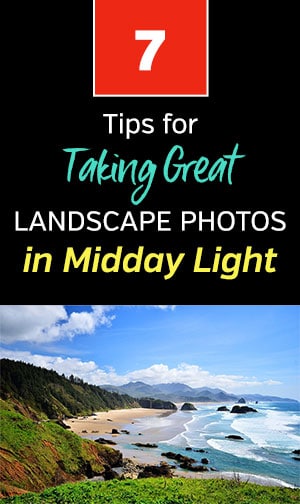
Photo license links: CC BY-SA 2.0, CC0

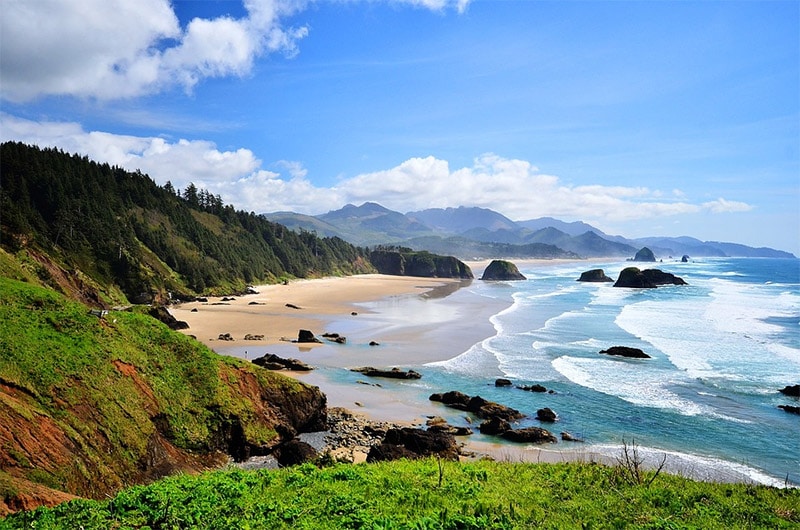





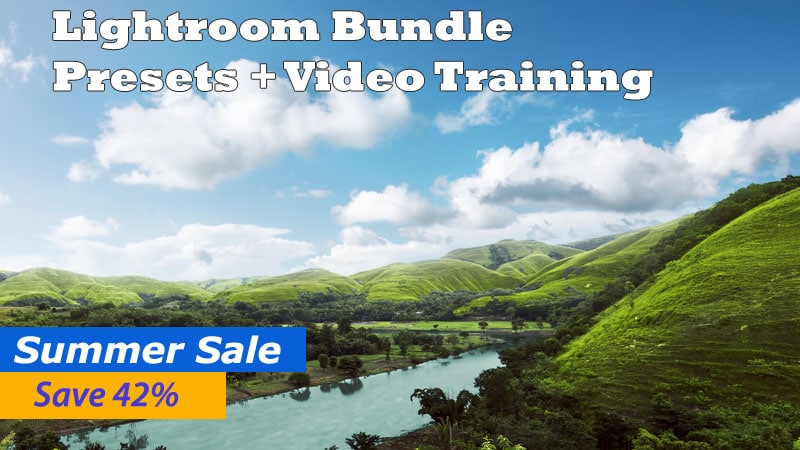

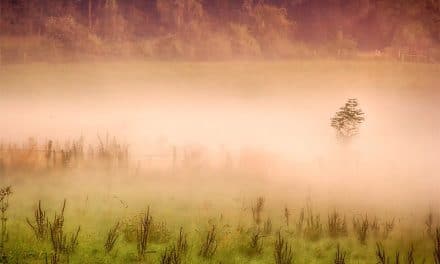





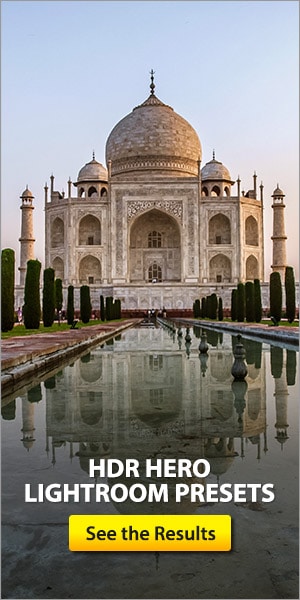
Another option is to bring along a camera that has been converted to infrared. It works best in harsh bright sun in the middle of the day.